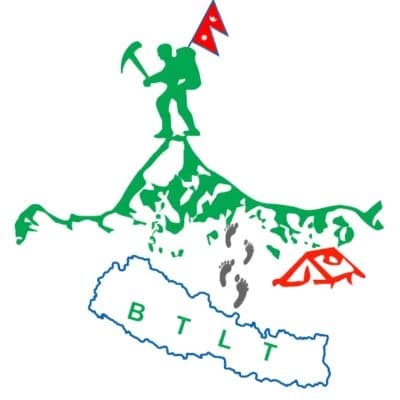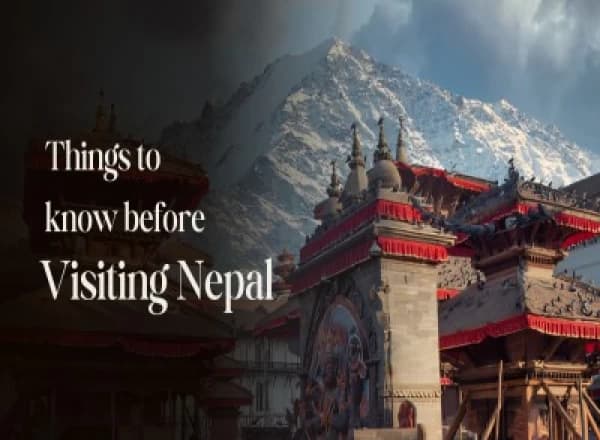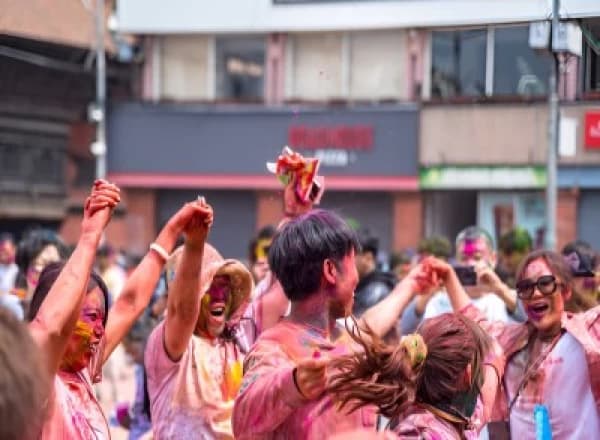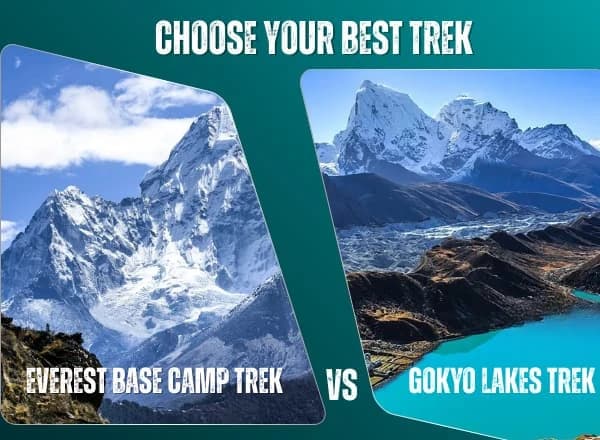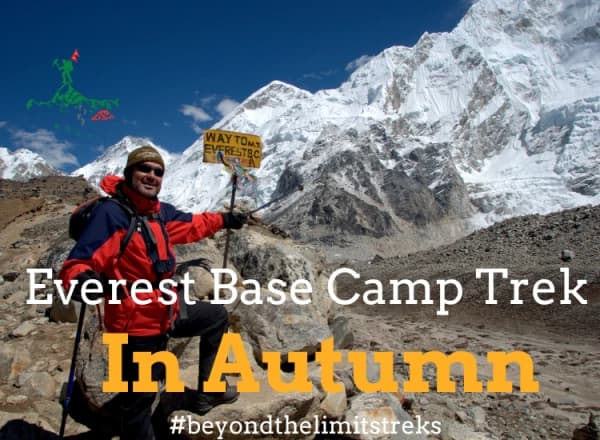Best Things To Do During EBC Trek:
Everest base camp trek, this trek is called EBC Trek is a journey filled with diverse experiences and activities. Each step offers unique opportunities to engage with the environment and the local culture. From awe-inspiring natural wonders to rich cultural encounters, the EBC trek is packed with activities that cater to both adventure and calm.

- Tenzing Norge and Admond Hilary Lukla airport: this airport is one of the top ten exciting airport in the world
- Namche Bazaar: A lively town offering a mix of traditional Sherpa culture and modern amenities. It’s a great spot for acclimatization, shopping, and enjoying beautiful mountain views.
- Tengboche Monastery: Visit this iconic monastery for its spiritual ambiance and stunning architectural beauty, set against the backdrop of the Himalayas.
- Everest Base camp: This call summit day for thistrek ,unforgetable memory
- Kala Patthar Sunrise: Offer the most spectacular views of Mount Everest, especially during sunrise.
- Photography: The trek provides endless stunning landscapes, perfect for capturing breathtaking photos of nature and local life.
- Explo unforgettable true: Experience the hospitality and rich culture of the Sherpa community, adding depth to your trekking adventure.
Preparing for the Trek: A Guide for Indian Trekkers:

For Indian trekkers embarking on the Everest base camp trek, thorough preparation is key to a successful and enjoyable experience. It involves not just physical readiness but also ensuring you have the right gear and documentation. Proper planning helps you tackle the challenges of high-altitude trekking and make the most of this incredible journey.
Physical Fitness
A good level of physical fitness is crucial for the EBC trek. Start preparing months in advance with cardio exercises, strength training, and hiking practice. It improves stamina and prepares your body for the demanding nature of high-altitude trekking.
Essential Trekking Gear
Invest in quality trekking gear, including a sturdy pair of hiking boots, thermal wear, a warm 4 seasons sleeping bag,4seasons down jackets, and a reliable backpack. Indian trekkers should also consider weather-appropriate clothing, as temperatures can vary significantly on the trek.
Documentation
Ensure all necessary documentation, including a valid passport or Indian citizenship card or Adhar card and the appropriate trekking permits and flight booking. Indian citizens should also carry any required identification for internal travel in Nepal and any permits specific to the region.
Altitude Sickness Awareness
Educate yourself about altitude sickness - its symptoms, prevention, and treatment. Understanding how to manage altitude sickness is crucial, especially for trekkers who are not accustomed to high altitudes.
Why is the Everest Base Camp Trek Popular Among Indians Trekkers?
The Everest base camp trek became Very popular for Indian trekkers, blending the thrill of adventure with the awe of nature’s grandeur. It is a dream for many adventure lovers and hikers, offering an opportunity to challenge oneself and experience the unparalleled beauty of the Himalayas. For Indian citizens, it’s a chance to explore an exotic and familiar landscape steeped in cultural ties and geographical proximity.
Proximity and Accessibility
One of the key reasons for the EBC trek being popular among Indian citizens is its proximity. The ease of access, with direct flights to Kathmandu and The Trekkers can Take Overland service to come to Kathmandu with no major visa hurdles, makes it an attractive destination for Indian adventurers seeking a high-altitude trekking experience.
Cultural Affinity
The cultural affinity between India and Nepal also plays a significant role. The shared religious and cultural beliefs, particularly in Hinduism and Buddhism, resonate with Indian trekkers, making the journey more meaningful and relatable.
Affordability
Compared to other international trekking destinations, the Everest Base Camp trek is more affordable for Indian citizens. The cost-effectiveness of the trek, including Guide, Porter, travel, accommodation, meals, and permits, makes it a preferred choice for many.
Adventure and Prestige
The prestige associated with reaching the base of the world’s highest peak is a significant draw. Trekking to the Everest base camp presents a formidable challenge, appealing to the spirit of adventure and achievement prevalent among Indian trekkers.
Natural Beauty and Biodiversity
The EBC trek (Everest Base Camp Trek) offers an escape into some of the most stunning natural landscapes in the world. From lush valleys to towering peaks, the diverse ecosystems and the opportunity to witness unique flora and fauna are highly appealing to nature enthusiasts from India.
Visa and Permit Requirements for Indian Trekkers( Citizens):
Indian citizens are exempt from the visa requirement for Nepal, but there are specific permits Sagarmatha National Park permit and the Pasang Lamu rural municipality permit needed to trek to the Everest base camp. Indian trekkers must obtain these permits to ensure a legal and environmentally responsible trekking experience.
- Sagarmatha National Park Entry Permit: The Everest Base Camp lies within Sagarmatha National Park, so an entry permit is necessary. This permit supports the park's conservation initiatives and can be obtained at the National Park office in Kathmandu or you can Get this Permit at the village called Monjo where you will enter Sagarmatha national park.
- Gaurishankar Conservation Area Permit: If you will Trek start from Jiri to Everest Base camp. you will cross via Gaurishankar Nation park this case you must have a Gaurishankar NatiPark park permit from shivalaya . It’s essential for supporting conservation in the area and is similar to the Sagarmatha National Park permit.
- Local Area Permit: In some parts of the Everest region, a local area permit is required. It can be obtained in Lukla or Monjo and is vital for managing and regulating local.
Permit and Entry fees for Indian passport holders for Everest basecamp Trek
Sagarmatha National park permit NPR 1500
Khumbu Pasang Lhamu Rural Municipality Entrance Fee NPR: 2000 (if you will stay more than 4 week It cost NPR-2500)
Traveling to Nepal from India:
For Indian citizens, traveling to Nepal is convenient, with multiple options available to suit different preferences and budgets. The choice of travel can significantly impact your overall trekking experience, so it’s important to select the mode that best aligns with your comfort.
- By Air: The quickest way to reach Nepal from India is by air. Major cities like Delhi, Mumbai, and Kolkata have direct flights to Kathmandu. This option is ideal for those looking to save time and enjoy a comfortable journey.
- Overland Routes: For those who prefer an overland adventure, there are several border crossings accessible by road, such as Sunauli-Bhairahawa, Raxaul-Birgunj, and Kakarbhitta. Traveling by bus or car offers a scenic route, allowing you to witness the diverse landscapes of both India and Nepal.
- By Train and Bus: A budget-friendly option is to take a train to a border city like Gorakhpur and then a bus to Kathmandu or Pokhara. This combination provides an authentic travel experience, though it takes longer than flying.
EBC Trek Itinerary:
Day 01: Arrive in Kathmandu, Transfer to Hotel
Day 02: Free Day in Kathmandu | Trek Preparation
Day 03: Flight to Lukla, Trek to Phakding (2,610m/8,563ft)
Day 04: Trek to Namche Bazar (3,440m/11,286ft)
Day 05: Acclimatization Day | Hike Around Namche Bazaar & shyangboche
Day 06: Trek to Tengboche (3,867m/12,687ft)
Day 07: Trek to Dingboche (4,410m/14,470ft)
Day 08: Acclimatization Day | Hike to Nagarsang Peak (5,170m/16,962ft)
Day 09: Trek to Lobuche (4,940m/16,210ft)
Day 10: Trek to Gorakshep (5,164m/16,942ft), Hike to Everest Base Camp (5,364m/17,598ft)
Day 11: Sunrise View at Kala Patthar (5,545m/18,192ft), Trek Pheriche (4,371m/14340ft)
Day 12: Trek Back to Namche Bazaar (3,440m/11,286ft)
Day 13: Trek Back to Lukla (2,860m/9,350ft)
Day 14: Flight Back to Kathmandu, Transfer to Hotel
14 Days EBC Trek Route Map:

Cost Includes EBC Trek Indian Nationality and Indian Trekkers :
- Pickup from Kathmandu International Airport
- 3 nights’ accommodation in Kathmandu 3-star Standard Hotel with Breakfast (Twin Sharing Base)if you like to stay at Delux (5-star)hotel consult with our expert
- Flight ticket from Kathmandu Lukla Kathmandu ( note that from the 1st of October to the last of November and the 2nd week of March to the 2nd week of May the Lukle flight from Ramechhap manthali airport. To arrive at Manthali airport it Takes about 4 hour's drive from Kathmandu. normally you will leave from Kathmandu 2 am.
- All permits such as National Park, Pasang Lhamu rural municipality permit TIMS Permit
- Tea house accommodation during the trek (Twin Sharing Base) If you like to stay in luxury the extra cost applicable
- 3 times meals a day such as Breakfast, Lunch, and Dinner during the trekking
- 3 cups of tea or coffee per day
- Duffel bag, Sleeping Bag, and Down Jacket (return after complete the trip))
- English Speaking governmental license holder professionals guide
- Trekking porter for this Trek one porter between two trekkers ( they will carry 20 kilograms)
- Staff insurance, well-paid salary, equipment, food & Hotel, etc..
- Flight ticket to Kathmandu from Lukla.
- Certificate of achievement (If needed)
- Farewell dinner in a Nepali restaurant in Thamel
- Transfer to the airport as your departure Date
- Comprehensive first aid medical Kids
Cost excludes EBC Trek Indian Nationality and Indian Trekkers (Passport holders):
- International airfare
- Nepal visa fees are not needed for Indian passport holders
- Lunch, Dinner, and Extra night accommodation in Kathmandu
- Personal Nature expenses
- Travel Insurance( need to cover Medical and evacuation)
- If more than the 3-night hotel in Kathmandu
- Meals in Kathmandu
- Hot shower during the trek
- All chargeable batteries, camera
- Extra cost Natural or Political Disturbance which beyond our Control.
- The Extra cost of any case of early return from the tour. Anything beyond the included section above or an unforeseen event out of the control or beyond the limits may incur additional charges. Where possible we will negotiate with the client for alternative arrangements.
- Tips for a guide and porters
- Tips for StaffStaffis expected)
Best Time to Trek to Everest Base Camp:
Choosing the right time for the Everest base camp trek is crucial for a fulfilling experience. Indian citizens can plan the trek throughout the year, but certain seasons offer more favorable conditions. While each season has its unique appeal, January presents a special opportunity for those looking for a quieter and serene trekking experience.
Winter (December to February)
Winter, especially January, is an ideal time for Indian trekkers who prefer a less crowded path. The mountains are beautifully visible when the sky are clear. Although it’s colder, with proper gear, the trek can be incredibly rewarding. The trails and teahouses are less crowded, providing a more personal and tranquil experience.
Spring (March to May)
Spring is a popular season for the trek, with warmer weather and blooming rhododendrons. This season offers excellent visibility, making it a great time for photography enthusiasts. It's also ideal for those who enjoy a more vibrant trail atmosphere.
Autumn (September to November)
Autumn is another preferred time due to stable weather and clear skies. The moderate climate during these months makes for pleasant trekking conditions, and the post-monsoon freshness adds to the beauty of the trek.
Summer (June to August)
While summer, the monsoon season, sees fewer trekkers due to rain and possible leeches, it brings lush greenery and a unique beauty to the trek. It's a good choice for those who don't mind occasional rain and enjoy solitude on the trails.
Do Indian Trekkers Need Guide and Porter During EBC Trek?
While not mandatory, the Nepal government's Tourism Ministry and Tourism Department as well as Trekking Agency Association of Nepal (TAAN) Recommended that taking the government-licensed holder guide and porter for the Everest base camp trek can greatly enhance the experience for Indian trekkers. A guide provides valuable insights into the local culture, and geography, and ensures safe navigation through challenging routes. Porters assist in carrying luggage, allowing trekkers to focus on the journey and enjoy the stunning scenery without the burden of heavy backpacks. Although seasoned trekkers may choose to go solo, the support of a guide and porter is recommended for a smooth and enriching trekking experience.
Cost of Everest Base Camp Trek Package for Indian Passport Holders:

The cost of the Everest Base Camp Trek varies based on several factors including the level of service, the duration of the trip, and the size of the group.
For a single person, the package price starts at INR 100,000, offering a comprehensive experience with essential services covered.
For groups, the cost per person can be more budget-friendly. this package is full board 14 days
- 2 to 6 Persons Trip Cost: INR 80,000 per person
- 7 to 16 people Trip Cost: INR 76,000 per person
For a Group Tour, Bed and Breakfast for the Everest Base Camp trek
2 to 6 persons INR-65000
7 to 16 persons INR 63000

Beyond The Limits Treks provides customizable packages tailored to your specific needs and preferences. Whether you’re trekking solo or as part of a group, our packages are designed to offer flexibility in both time and cost. We ensure your trek to Everest base camp is memorable and affordable.
Accommodation and Meals
During the Everest base camp trek, accommodation primarily consists of teahouses or lodges, which offer basic yet comfortable rooms, typically with shared bathroom facilities. These teahouses provide a cozy, authentic Himalayan lodging experience. As for meals, trekkers can expect a menu of local and international cuisine, with options ranging from traditional Nepali dal bhat to pasta, soups, and more. Meals are designed to be nutritious, catering to the energy requirements of high-altitude trekking.
Other Facilities During EBC Trek
Along the Everest base camp trek, facilities like WiFi, hot showers, and device charging are available, but they can vary in availability and quality as you ascend. WiFi is generally accessible in lower elevation areas, though it may come with a small fee. Hot showers are often provided, but with colder temperatures at higher altitudes, the availability can be limited. For charging electronic devices, teahouses usually have shared charging points, but it’s advisable to bring a power bank as a backup, especially for higher elevations where electricity might be less reliable.

Everest Base Camp Trek with Beyond The Limits Treks:
The Everest Base Camp Trek is a remarkable experience, particularly for Indian trekkers seeking adventure amidst the majestic Himalayas. It offers a journey filled with cultural insights, breathtaking natural beauty, and a sense of accomplishment that resonates deeply. You can witness some of the world’s most spectacular landscapes and test your limits in the face of nature’s grandeur.
Beyond The Limits Treks makes the iconic EBC trek accessible and enjoyable for Indian adventurers. Our comprehensive package is thoughtfully designed to cater to your needs, ensuring a comfortable and memorable experience. From logistical support to providing knowledgeable guides who understand the cultural and linguistic nuances important to Indian trekkers, we take care of every detail. Contact us today and begin your journey to the base of the world’s highest peak.
Most Asked Questions on Everest Base Camp Trek FAQ:
1) What type of accommodation and food to expect?
✔ Accommodation on the Everest base camp trek usually consists of teahouses or lodges that offer basic but comfortable rooms, often with shared bathroom facilities. The food includes a variety of options ranging from traditional Nepali dishes like dal bhat (rice and lentils) to more familiar international cuisine such as pasta, pizza, and soups.
2) Do we get Internet access and is the network available?
✔ Internet access is available in most of the teahouses and lodges on the trek, especially in lower altitudes, but the connectivity can be intermittent and slower as you go higher. Mobile network coverage varies, with decent coverage in lower regions but limited to no service in higher, more remote areas.
3) Is there a Group Discount Offer for EBC Trek for Indians?
✔ Many trekking agencies, including Beyond The Limits Trek, offer group discounts for the Everest Base Camp Trek. The discount rate often depends on the size of the group. It's advisable to inquire directly with the trekking company for specific discount details.
4) Does the Guide Speak Hindi?
✔ Many guides on the Everest Base Camp Trek speak Hindi, especially those who frequently work with trekkers from India. It’s recommended to specify your language preference when booking the trek to ensure a guide who speaks Hindi is available.
5) How much does it cost to trek to Everest Base Camp in Indian rupees?
✔ The cost of the Everest base camp trek can vary widely depending on various factors like the level of service, duration of the trek, and whether it’s a private or group trek. On average, the cost ranges from
2 to 6 Persons Trip Cost: INR 80,000 per person(Full board as per itinerary)
7 to 16 people Trip Cost: INR 76,000 per person( Full Board as Per itinerary)
If you like to take a semi Package ( meals and drinks you pay yourself )
Group Trek for Everest Base Camp (3-night hotel in Kathmandu, Kathmandu or Ramechhap, Lukla and return, Domestic flight, guide, permit, accommodation, porter )
2 to 6 persons INR-75000
7 to 16 persons INR-69000
. However, it’s best to check with trekking agencies Beyond the Limits Treks and Expedition for the most accurate and current pricing.
See here for more FAQ on Everest Base Camp Trek.
Related Blogs:


